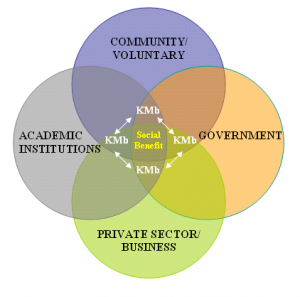SSHRC Knowledge Synthesis Grant November 2015 Competition
How can emerging technologies be leveraged to benefit Canadians?
The Knowledge Synthesis grant will foster a deeper understanding of the state of knowledge regarding the human dimensions involved in emerging technologies. The resulting syntheses will also help identify roles that the academic, public, private and not-for-profit sectors may play in seizing future opportunities and mitigating risks related to these technologies. This knowledge will pave the way for developing robust policies, strategies, practices and tools for a sustainable, equitable and prosperous future for Canada and the world.
For full details on this competition, see: http://www.sshrc-crsh.gc.ca/funding-financement/programs-programmes/ksg_emerging_technologies-ssc_technologies_emergentes-eng.aspx
Application Deadline: January 12, 2016 (8:00pm EST)
Results announced: March 2016
Award amount: $25,000
Duration: 1 year
Objectives of this funding opportunity:
- State of Knowledge and Research Gaps:
- critically assess the state of knowledge of the Future Challenge Area theme under consideration;
- identify knowledge gaps within the theme; and
- identify the most promising policies and practices related to the theme.
- Research Data:
- assess the quality, accuracy and rigour of current work in the field; and
- identify gaps in the quantitative and qualitative data available.
- Knowledge Mobilization:
- mobilize knowledge related to promising policies and practices within the academic, private and public policy sectors; and
- facilitate dialogue between academic researchers, cross-sectoral stakeholders and policy-makers in government.
Expected Outcomes
Knowledge Synthesis Grants are not intended to support original research. Rather, they are intended to support the synthesis of existing research knowledge and the identification of knowledge gaps. This call is particularly focused on the state of research knowledge emerging over the past 10 years.
The purpose of this funding opportunity is to support researchers, teams of researchers and knowledge users to produce knowledge syntheses and scoping reviews that will contribute to the use of synthesized evidence in decision-making and practice.

 Brescia English professor Dr. James Doelman, will present a lecture on his current research on unpublished manuscript funeral elegies from the Early Modern Literary period in England (17th century). Dr. Doelman is the 2015 Brescia Excellence in Research Professor, and winner of the inaugural Brescia Award for Excellence in Research. His forthcoming book, The Epigram in England: 1590-1640 published by Manchester University Press is due out later this year.
Brescia English professor Dr. James Doelman, will present a lecture on his current research on unpublished manuscript funeral elegies from the Early Modern Literary period in England (17th century). Dr. Doelman is the 2015 Brescia Excellence in Research Professor, and winner of the inaugural Brescia Award for Excellence in Research. His forthcoming book, The Epigram in England: 1590-1640 published by Manchester University Press is due out later this year.